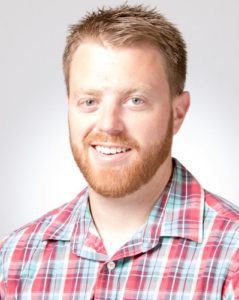
Bob O’Leary is one of those lucky people who landed his ideal job. But luck isn’t really what got him the position. The University of Wisconsin–Madison’s Resource and Energy Demand Analysis (REDA) master’s degree program played an important role.
O’Leary works as a market analyst for CF Industries, one of the country’s largest nitrogen fertilizer manufacturers. He began his path to REDA while working for a fertilizer retailer and a biotechnology seed company.
“I became fascinated with what different farmers were willing to pay for their imports,” he says.

This interest led O’Leary to contact Tom Cox, a UW–Madison professor he got to know while earning his bachelor’s degree in agricultural business management. Cox suggested REDA, which teaches students how to design, manage, and evaluate programs that conserve natural resources. In the process, they discover how to determine which conservation initiatives work best in the real world by using applied economics, econometrics, survey methods, and statistical analysis.
When students complete the innovative one-year program, they are ready for jobs at utilities, regulatory agencies, consulting firms, businesses focused on renewable resources, and other employers that need people who understand economic modeling, big data, and leading-edge analytics tools such as R. The program also provides opportunities to interact with professionals in these industries, which can open doors to job interviews.
Return on investment
O’Leary was originally considering MBA programs but chose REDA because it offered something that appealed to the economist in him: “a low opportunity cost for a one-year, full-time master’s program.” He was also confident it would provide a solid return on his investment.
Along the way, he came to enjoy the program’s cohort-based learning experience, which helps students learn as a community as they work their way through online and face-to-face classes.
“Having small groups to work in helps build your teamwork skills and adds a lot to the overall experience,” he explains.
REDA’s instructors are an integral part of the learning experience as well. O’Leary was impressed by how available they made themselves to students.
“I was in office hours every week to take advantage of the wealth of knowledge they hold,” he says.
In addition to taking courses on energy policy and many aspects of applied economics and econometrics, O’Leary completed a practicum project on energy forecasting. This project has informed his work at CF Industries.
“I use what I learned in my project every day to forecast agricultural supply and demand,” he explains. “REDA taught me how to use statistical programming and modeling to find meaningful insights.”
For more information on the program, visit the REDA website. The program is accepting applications for summer 2019 this fall.